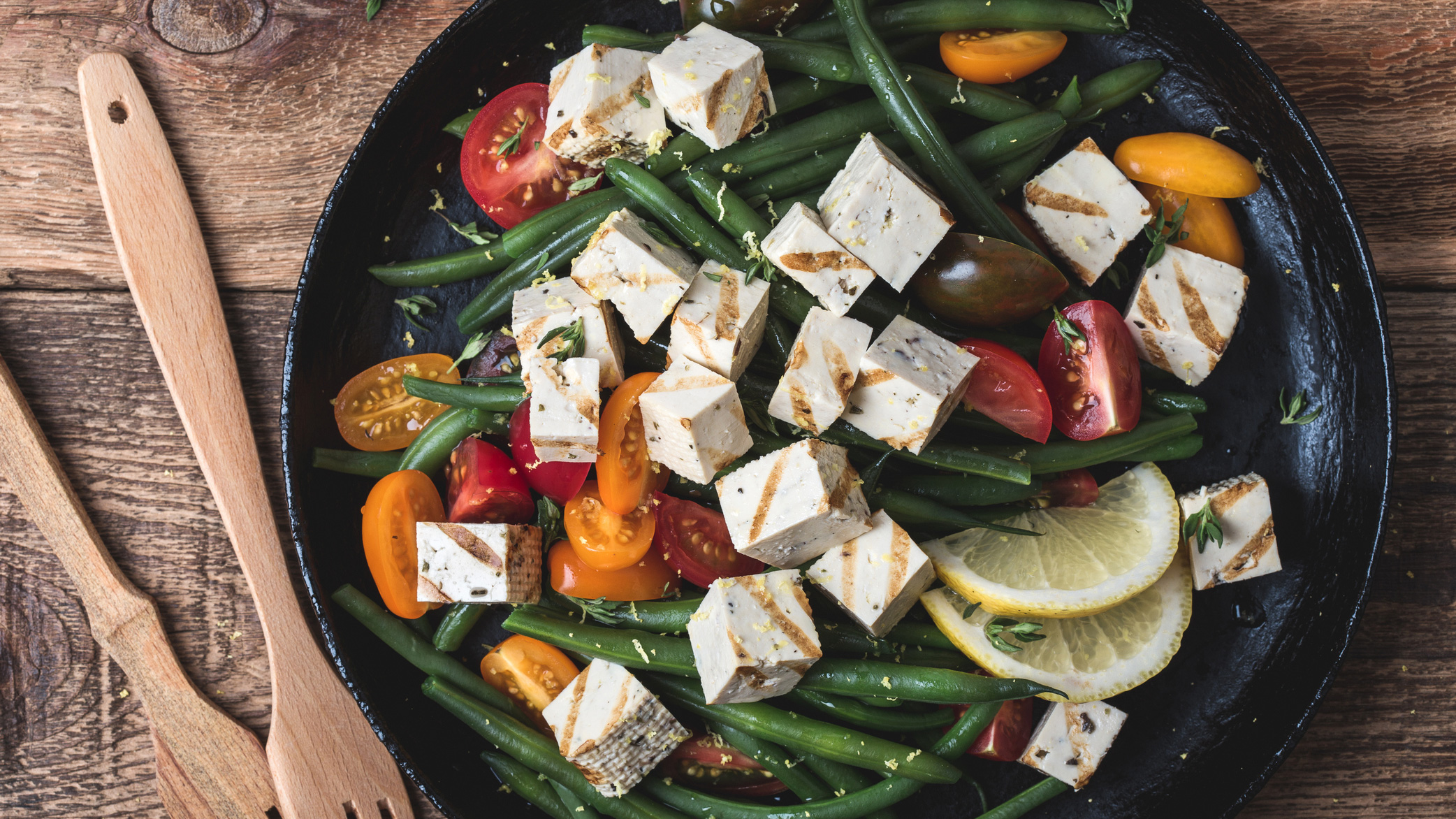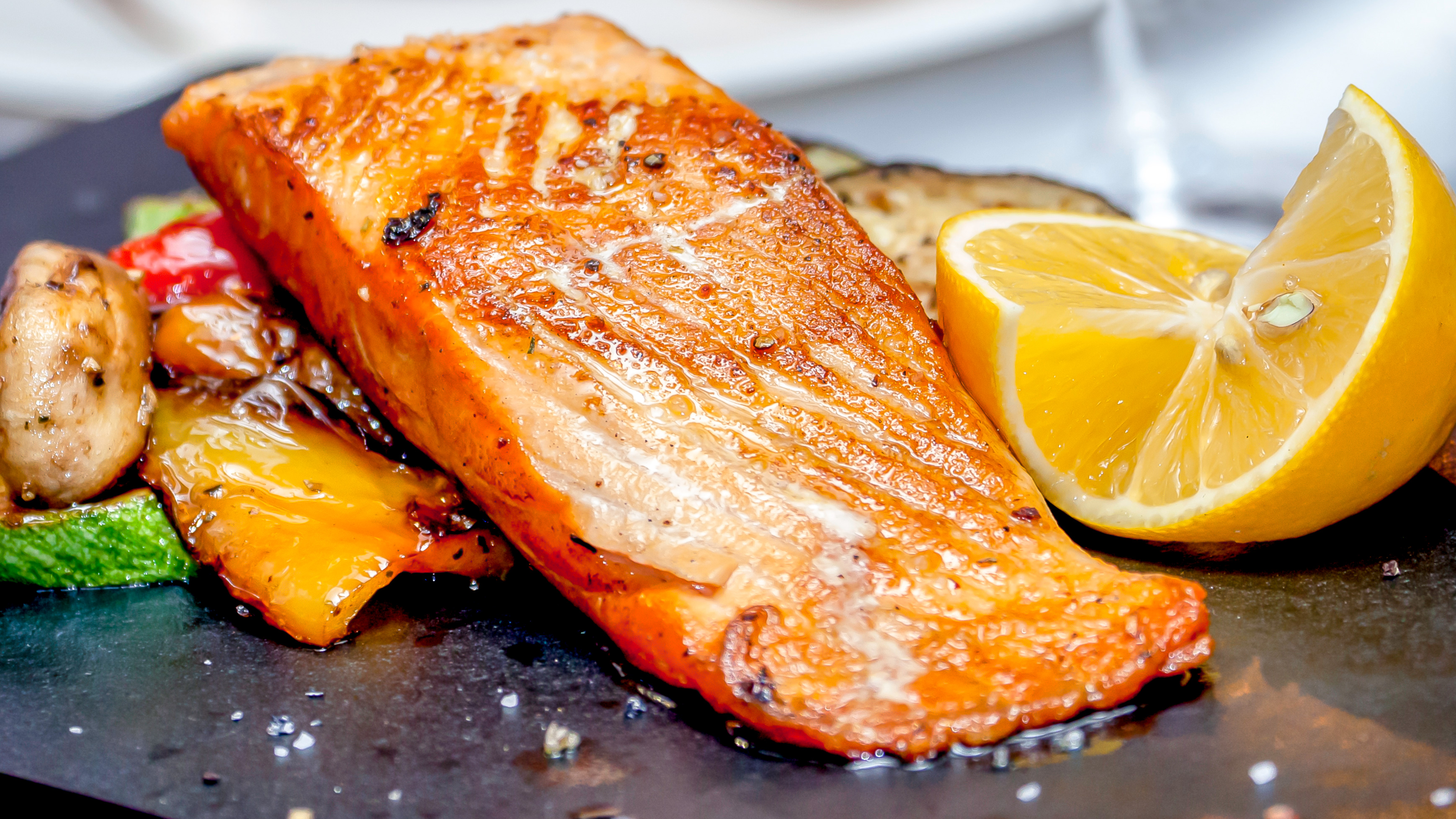What foods make you lose weight?
Looking to shed lbs? We look at what foods make you lose weight, and how to incorporate them into your diet


Start your week with achievable workout ideas, health tips and wellbeing advice in your inbox.
You are now subscribed
Your newsletter sign-up was successful
What foods make you lose weight? If you are dieting or re-examining what you eat, you may have read that to drop pounds safely, and for permanent weight loss, you shouldn’t be drastically cutting out any food groups. However, certain foods can help you lose weight when incorporated into a balanced diet.
The best way to lose weight is to look at your calorie expenditure, whether that's just walking around with a fitness tracker or doing a hard session on one of the best exercise machines to lose weight, and compare it with what you’re eating. If you’re eating too many high-sugar or calorific foods and not moving enough, or the foods aren’t satisfying your appetite, it could be time to redesign your diet. If you’re hoping to shed a few pounds you’ll need to make sure you’re in a calorific deficit every day, and that you’re eating foods which can help you achieve that goal.
There are no ‘magic’ foods which will make you lose weight instantly, but some foods can help speed up your metabolism over time or help keep your hunger hormones at bay. We look at the studies and talk to the experts on how to lose weight by following a well-balanced meal plan, how to get to a calorie deficit, and what foods really make you lose weight.
How does food affect weight loss?
If you’re looking to lose weight, one of the most important factors to shedding the pounds, and keeping them off, is your calorie intake. The FDA recommend the average woman consumers 2,000 calories per day. If you’re looking to lose weight, dependent on how active you are, this should be cut down to ensure you’re burning more calories than you’re consuming.
It also helps to eat a balanced diet – full of whole grains, fruit and vegetables and lean meat, which is a rich protein source. Protein can help to boost your metabolism, balance your hunger hormones and reduce cravings for snacks later on in the day. According to Seattle researchers, eating protein suppresses hormones which control your appetite. More on that later – but in the meantime, you can browse our best protein powder for weight loss guide.
Some studies, including this 2018 Stanford study, indicate that the amount of calories we consume don’t impact our weight loss goals, and it’s instead nutritional quality rather than quantity that matters. However, we’ll usually end up eating less calories if we stil to sensible, long term portion control and healthy eating advice, We’ll naturally eat less, and burn more calories, when we’re eating a healthy balanced diet as our hunger hormones are stabilised and our metabolisms boosted.
Fad diets, such as a low-carb, low-fat, supplement-only, or protein-heavy restrictive diets can work for some people for a short period of time, but cutting out entire food groups can be tough on the body as it denies you of certain nutrients or vitamins. They normally result in quick weight loss, but not sustained weight loss – which is what most of us are aiming for.
Start your week with achievable workout ideas, health tips and wellbeing advice in your inbox.

Are there particular foods that make you lose weight?
We’ve already established that to lose weight, you need to be in a calorie deficit, but some foods such as whole grains and protein-rich meats can affect the way you burn calories.
The journal Nutrition Research shows that whole grains and high-fibre foods, including beans, brown rice, oats and avocados can reduce obesity and help to reduce inflammation in the body.
Nigel Mitchell, resident nutritionist at meal-planning service MunchFit, explains: “High fibre foods help you to feel fuller which can reduce the overall energy consumption. It also helps to feed the gut microbiome, which supports general health.”
Nutritional health coach and founder of online wellness hub The Health Zoc, Holly Zoccolan, agrees. “High-fibre foods help your body reduce inflammation, which is associated with weight loss. The high-fibre foods that are best for you include flaxseeds, chia seeds, sweet potato and blueberries.” All these examples are foods that contribute to weight loss.
Protein rich items, including chicken, salmon or tofu, can also be foods that make you lose weight. Studies show that protein is important for controlling your hunger hormones, ghrelin and leptin. These hunger hormones also work best when you’re eating a balanced diet and have slept well.
But, Mitchell warns, there are no ‘magic’ diet foods. “For example, salmon is great for you, but it’s not a ‘magic’ fat burning food – but because it is high in protein [and rich in healthy fats] it can help to satiate appetite and reduce hunger pangs.”
Does your diet affect your metabolism?
Your metabolism is the process via which your body converts what you eat into an energy source – this, in turn, helps your body to perform tasks such as walking, talking, and even thinking.
Mitchell explains: “It is referred to as the thermic effect of food, which is one argument for regular snacking when trying to lose weight.”
Some foods, such as sugars, can stall your metabolism and increase weight and fat gain, according to this 2016 study published by the University of California. “If you’re eating highly-processed and high-sugar foods, this can cause your metabolism to become sluggish and slow meaning it doesn’t activate as well,” explains Zoccolan.
Choosing a more balanced diet, can help to switch up how your metabolism works, says Zoccolan: “Fresh, whole foods help to improve your metabolism and your overall health as well as reducing food cravings.”
A high-protein diet, filled with foods such as fish, eggs, and lentils, is also said to increase your metabolism, and help you burn between 80-100 calories more per day, according to research.
However, if you crave some sweet foods, it’s not all bad news, as Mitchells tells us: “Foods such dark chocolate and coffee can help the body mobilise fat stores, which can be used as energy in moderate exercise.”
Mitchell also explains that another thing that effects your metabolism is exercise - in particular resistance work: “The main thing that affects the body's metabolic rate is muscle mass, so increasing muscle mass increases the metabolic rate.”
Aim to move every day, even if it’s just a small walk. If you really want to fire up your metabolism, add two to three resistance training sessions to your diary every week.
Sarah is a freelance journalist who writes about fitness and wellbeing for the BBC, Woman&Home and Tech Radar. During lockdown she found her love of running outside again and now attempts to run around 50 miles a month. When it comes to other fitness, she loves a sweaty cardio session – although since she’s been working out from home she’s sure her downstairs neighbors aren’t too happy about it. She also loves to challenge herself - and has signed up to do hiking holidays, intense bootcamps and last year she went on her dream activity holiday: paddle boarding around deserted islands in Croatia. On her rest days, she loves to recover with a simple yoga flow session – the perfect antidote to her active fitness schedule.
